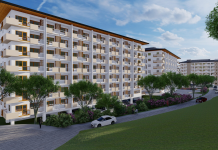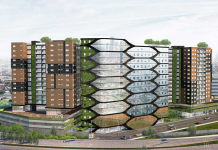
While the trend of physical retailers going online has become the norm, there is a growing trend of once online-only retailers setting up storefronts to snag a larger share of lucrative brick-and-mortar sales, according to observations from real estate firm JLL.
Naveen Jaggi, President Retail Brokerage and Capital Markets, JLL Americas, said: “These days, seamless online and offline integration is required for any retailer to survive. It is what consumers are demanding. Whether it is an online retailer building out a physical store, or a legacy brick-and-mortar retailer increasing its online platform, aligning online and in-store is crucial to a retailer’s success.”
The shift from e-commerce to physical space is happening worldwide. Major online U.S. retailers such as eyewear specialists Warby Parker, fashion retailer Bonobos, and U.K. bedding retailer The White Company are building and leasing retail storefronts to supplement online product sales.
On the other hand, legacy retailers such as Staples, Kohls, Nordstrom, and Macys are advancing their online presence to create a seamless shopping experience. Both Nordstrom and Macys, for example, have a no-questions-asked returns policy. Regardless of whether shoppers buy an item, they can return it to any store and get instant store or exchange credit.
“These legacy retailers are making the entire relationship between online and brick and mortar unified and actually quite pleasurable – as opposed to the online return process where you have to return an item via UPS or another carrier, which can seem daunting to the consumer,” Jaggi added.
Indeed, few retailers can afford not to trade online, said James Brown, Head of Retail Research and Consulting at JLL EMEA.
He said: “Being online alone is not the solution with a high cost of targeting customers online, high distribution costs, stock control challenges and thin to negligible margins. So in the same way as physical retailers are trying to build up an online presence, the move from pure play retailers to take physical space, to build brand and to provide an additional distribution channel, is the next obvious step.”
“Proof is emerging that opening select physical stores for these retailers helps drive both sales in store, but also further supports the promotion and growth of their online business,” he added.
In Thailand citing one Southeast Asia example, most of the major physical retailers such as Central, The Mall Group, Tesco-Lotus, Big C and Makro have built their online platform. The trend of online retailers opening physical shops is growing among SME retailers that started online and are now using storefronts to boost sales and brand exposure.
Online to offline or offline to online – retailers need to break down the barriers between the two to create the shopping experience that consumers increasingly expect.
As Brown added: “This is the future of seamless onmi-channel retailing – and we are starting to see that the right combination of product, seamless distribution and customer service, really does work in driving incremental sales.




















